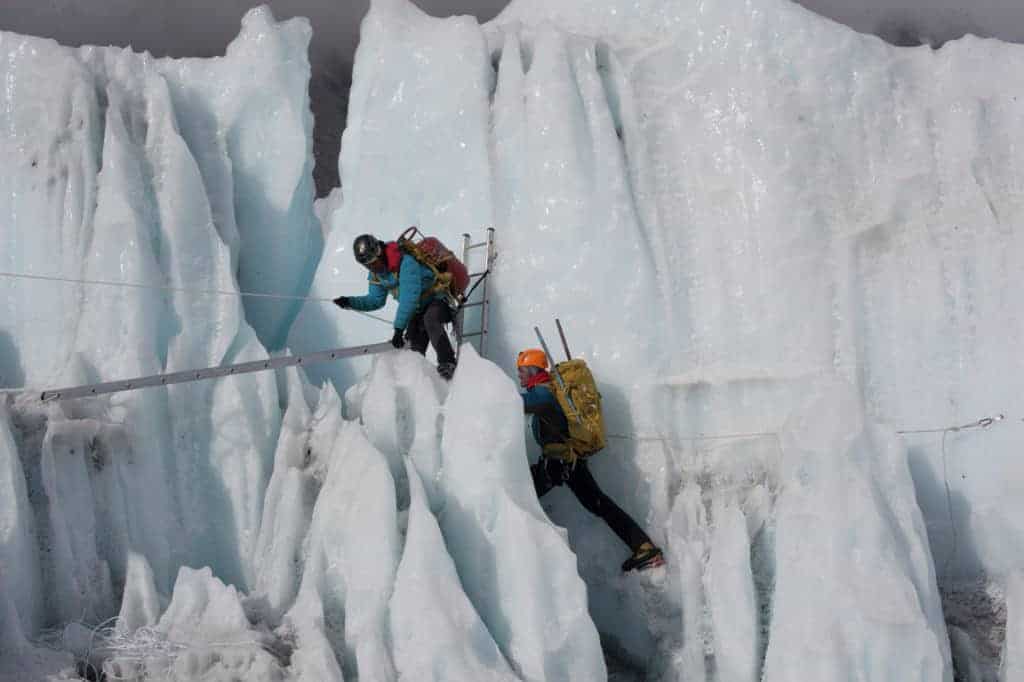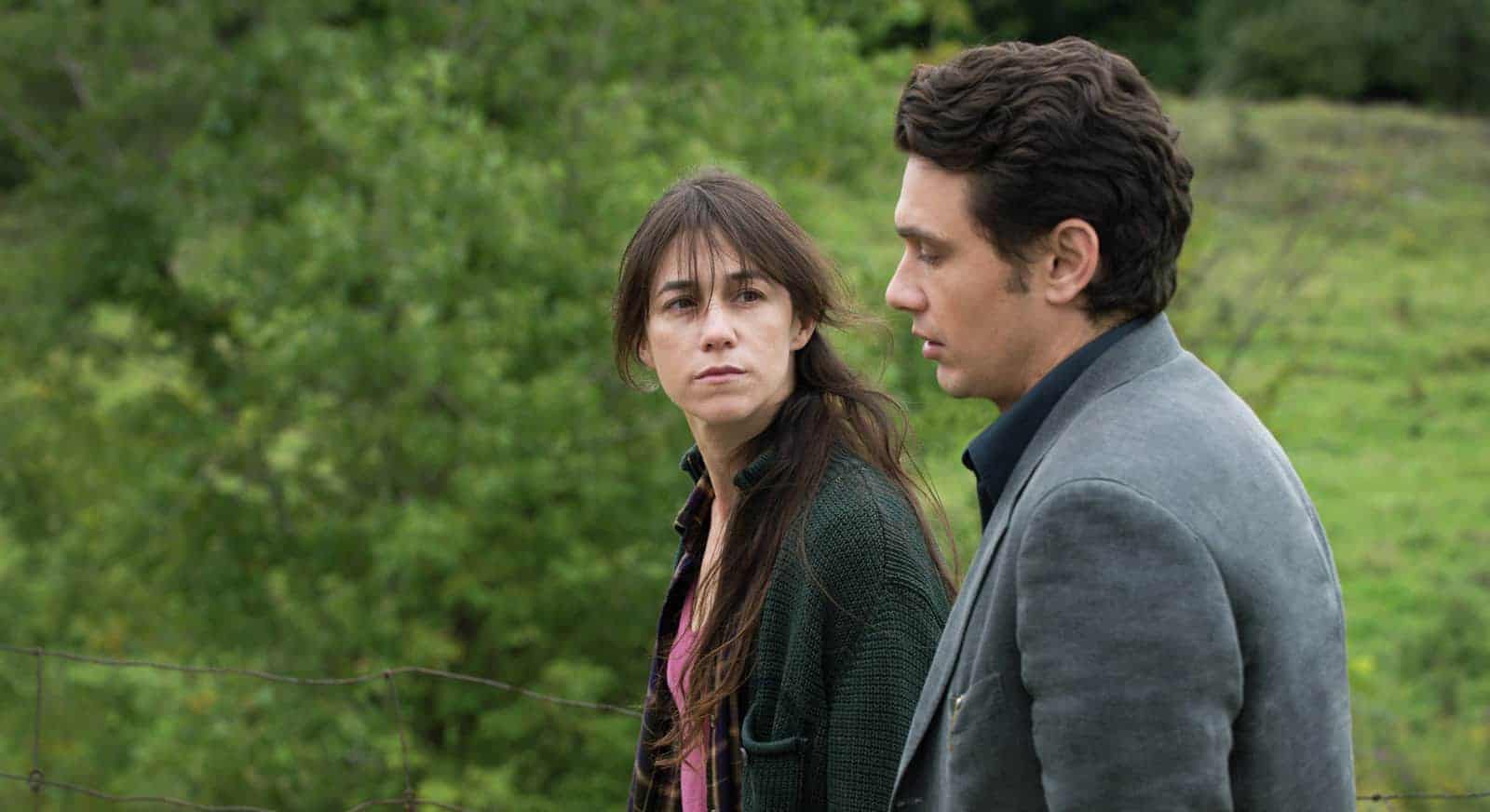With Sherpa, Australian filmmaker Jennifer Peedom revisits the story of Everest, but in present day and from the Sherpas’ perspective instead of that of the Westerners who hope to conquer it. The film is now streaming on Netflix in the UK, Australia, and New Zealand.
Read our interview with Jennifer Peedom on Sherpa

Discover one film you didn’t know you needed:
Not in the zeitgeist. Not pushed by streamers.
But still easy to find — and worth sitting with.
And a guide to help you do just that.
We seem to be inundated with climbing documentaries lately, from this year’s excellent Meru to Leanne Pooley’s wonderful 2013 film Beyond The Edge. Pooley’s film highlighted the pivotal role of Sherpa Tenzing Norgay in Sir Edmund Hillary’s historic ascent of Everest. With Sherpa, Australian filmmaker Jennifer Peedom revisits the story of Everest, but in present day and from the Sherpas’ perspective instead of that of the Westerners who hope to conquer it. She does so with stunning visuals — the red coats against the white snow, poetic imagery showcasing the beauty of the mountain — and great attention to sound design.
The result is a moving story of the Sherpas reclaiming and fighting for their rights in the midst of Westerners’ persistent colonial attitudes. Even more than Pooley’s doc, Sherpa serves to set the record straight. No Westerners would be able to climb Everest without the help of the genetically super-powered Sherpas, an ethnic group that has evolved over the past 3000 years to adapt to life at high altitudes.
In the last few decades, an industry has developed around helping Westerners reach the summit of Everest. Because the Nepalese government doesn’t allow helicopters to bring supplies up the mountain, tour companies rely on teams of Sherpas to do the heavy — and dangerous — lifting.
While the Sherpas earn more money from a couple months of supply-carrying than they would in a year from regular wages, they’re still exploited. They’re still treated as disposable labour, receiving little thanks, working in very risky conditions, and getting paid a tiny fraction of the fees the Westerners pay the tour companies for the climb.
Shot in 2014, the film follows Phurba Tashi, a Sherpa — an ethnic group and not a job description — about to make his 22nd ascent up the mountain. What Peedom couldn’t predict was that an unprecedented avalanche would kill 12 Sherpas on the first climb of the year. Out of respect the Sherpas decided to stop climbing, effectively cancelling the season.That decision was the result of the Sherpas’ first attempt to organize, to discuss the injustice of their treatment, and to talk about their needs on the climb. They stood together in solidarity for what they believed.
Peedom interviews Phurba Tashi’s family about how they feel about his climbing. They worry for his safety. He feels obligated to work for their livelihood. He also wrestles with whether his family’s stress is worth the financial gain. It’s the first time the Sherpa perspective has taken centre stage in a Western film about Everest. Peedom refuses to depict them as the simple, smiling, helpful stereotype to which we’re accustomed. They’re people with families to feed and a fountain of empathy for Westerners.
Unfortunately, that empathy does not run both ways. Peedom captures one American tourist who calls the Sherpas’ decision to halt the climb a “terrorist act” before referring to the Sherpas’ employers as their “owners.” Nobody bats an eye. Everyone behaves as though they have a right to the Sherpas’ assistance, whatever the risks — including Australian tour leader Russell Brice, who has been working with Sherpas for over two decades. Peedom doesn’t make any explicit comments, but she cuts the footage together for maximum impact. The Westerners act like entitled, racist colonialists. Peedom is keenly aware that none of these people could scale Everest without the Sherpas: what they merit is gratitude from Westerners, not discriminatory, degrading statements.
Sherpa would make a good companion piece with Hubert Sauper’s recent We Come As Friends. In their own ways, both document the way that colonialist attitudes continue to persist today and the ways in which wealthy Westerners continue to disenfranchise locals in developing countries. The poorer the locals, the more they depend on the scraps the foreigners hand out, and the greater the injustices. I left Sherpa embarrassed for my fellow Westerners and with great hope for the future now that the Sherpas have demanded better treatment. Through terrific nature photography from Renan Ozturk, Hugh Miller, and Ken Sauls, Peedom has captured anew the wonder of Everest.
Sherpa screens Tues. Sept. 15 at 6:45 p.m. in Scotiabank 4, Thurs. Sept 17 at 10 a.m. in Bloor Hot Docs Cinema, and Sun. Sept. 20 at 10 p.m. in Bloor Hot Docs Cinema.

